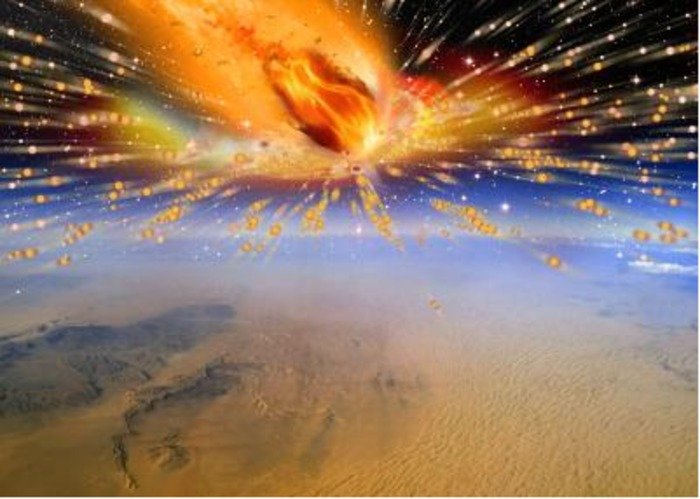WITWATERSTRAND, South Africa, Oct. 8 (UPI) -- South African scientists say they've found the first evidence of a comet entering Earth's atmosphere and exploding, obliterating much of life on the planet.
Working with international collaborators, researchers at the University of the Witwaterstrand say the first definitive proof of a comet striking Earth millions of years ago could yield clues to the secrets of the formation of our solar system.
"Comets always visit our skies -- they're these dirty snowballs of ice mixed with dust -- but never before in history has material from a comet ever been found on Earth," researcher David Block said.
Analysis of a mysterious black pebble found years ago in Egypt led researchers to conclude it represented the first known specimen of a comet nucleus, rather than simply an unusual type of meteorite.
It's from a comet that entered the atmosphere above Egypt about 28 million years ago, they said, where it exploded, heating up the sand beneath it to a temperature of about 3,600 degrees F.
The result was a huge amount of yellow silica glass scattered over a 2,300-square-mile area in the Sahara.
A magnificent specimen of the glass, polished by ancient jewelers, is found in Tutankhamun's brooch with its striking yellow-brown scarab.
Comet material is very elusive; comet fragments have not been found on Earth before except as microscopic sized dust particles in the upper atmosphere and some carbon-rich dust in the Antarctic ice.
That makes the confirmation of the Egyptian pebble as comet material a significant milestone, the researchers said.
"It's a typical scientific euphoria when you eliminate all other options and come to the realization of what it must be," study lead author Jan Kramers of the University of Johannesburg said.
The finding could have implications that go far beyond their impact on earth, Block said.
"Comets contain the very secrets to unlocking the formation of our solar system and this discovery gives us an unprecedented opportunity to study comet material first hand."















